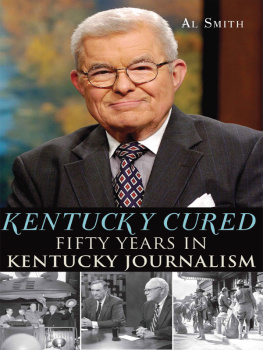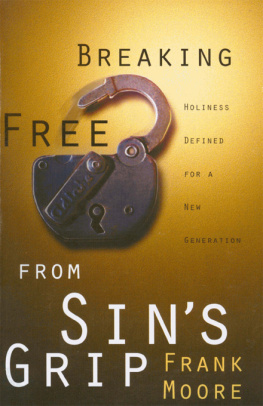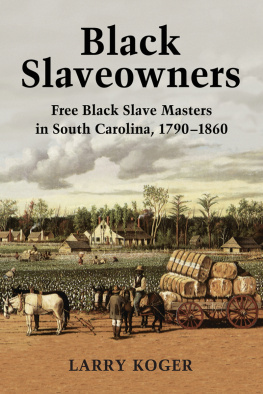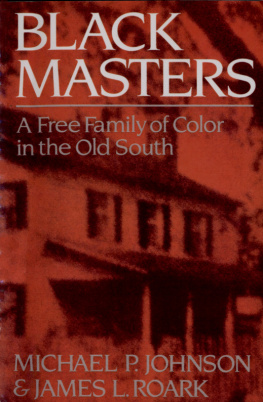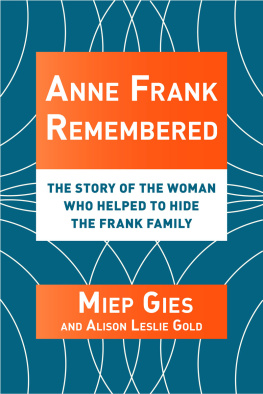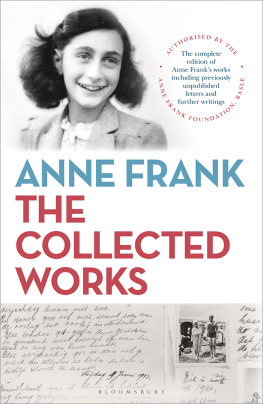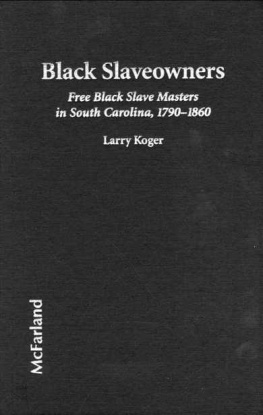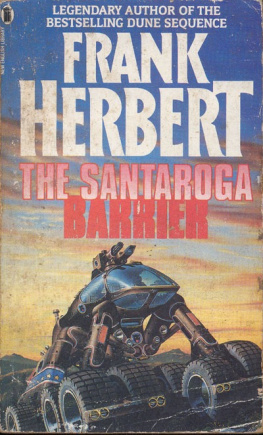Copyright 1983 by The University Press of Kentucky
Scholarly publisher for the Commonwealth,
serving Bellarmine University, Berea College, Centre
College of Kentucky, Eastern Kentucky University,
The Filson Historical Society, Georgetown College,
Kentucky Historical Society, Kentucky State University,
Morehead State University, Murray State University,
Northern Kentucky University, Transylvania University,
University of Kentucky, University of Louisville,
and Western Kentucky University.
All rights reserved.
Editorial and Sales Offices: The University Press of Kentucky
663 South Limestone Street, Lexington, Kentucky 40508-4008
www.kentuckypress.com
Cataloging-in-Publication Data is available from the Library of Congress.
ISBN 978-0-8131-0840-7 (pbk: acid-free paper)
This book is printed on acid-free recycled paper meeting
the requirements of the American National Standard
for Permanence in Paper for Printed Library Materials.
Manufactured in the United States of America.
| Member of the Association of
American University Presses |
To Free Franks Great-GranddaughterMy Mother
Thelma McWorter Kirkpatrick WheatonAcknowledgments
In writing this book I have had the support and encouragement of many people, and I am pleased to acknowledge the many kindnesses they have shown. The study of Free Frank grew out of my work as a graduate student at the University of Chicago, where three people particularly, have earned my gratitude. Dean Charles OConnell was especially supportive of my work, and I would like to express my thanks to him for that support. The germ of this book emerged from discussion of New Philadelphia with Professor Peter Goheen in his classes in urban geography. Professor John Hope Franklin encouraged me to undertake the study of Free Franks life as my dissertation. His criticism and insights as my dissertation adviser constantly enlarged my perspectives. His continuing support of my work since completion of the dissertation is gratefully acknowledged.
Preparing the manuscript for publication has been an unforgettable experience. Of course, I can convey only my gratitude for the generous assistance received. I have benefited from conversations and correspondence with many colleagues. Barbara Flint offered her critical insights and has helped clarify my ideas at every stage of the manuscript. Darlene Clark Hine called attention to Free Franks perspectives of the frontier. An early draft of the first chapters was read by James Anderson, Richard Barksdale, Chester Fontenot, and Alton Hornsby, Jr., who offered useful comments on style and interpretation. My discussion of Free Franks saltpeter activities benefited from comments made by Stanley Engerman. Mary F. Berry, John W. Blassingame, Willard B. Gatewood, and Nell I. Painter read the entire manuscript and provided their encouragement through support of various aspects of my interpretation of Free Franks life. My largest debt undoubtedly extends to Professor Gatewood, who provided many useful criticisms of the manuscript and offered many suggestions for its improvement.
I also welcome the opportunity to note the generous support and encouragement that I received from my colleagues in the History Department at the University of Illinois, especially during the final stage. I can never hope to thank adequately Clark C. Spence, Robert M. Sutton, Robert McColley, William Widenor, Mary Lee Spence, Ralph Fisher, Caroline Hibbard, Ronald Jennings, John McKay, and John Pruett. I can only trust that in some small degree I have justified the help so generously given. I am also indebted to Walter Arnstein, Natalia Belting, Richard Burkhardt, Donald Crummey, John Dahl, C. Ernest Dawn, Bennett Hill, Keith Hitchens, Thomas Krueger, Richard Mitchell, Winton Solberg, and Robert Waller. I would also like to thank Gwen Varnell for her careful typing of an earlier draft of the manuscript.
I am particularly grateful for the assistance I received at the Pulaski County Clerks Office in Somerset, Kentucky, and at the Pike County Clerks Office in Pittsfield, Illinois, while researching the dissertation. A University of Illinois Scholars Travel Grant enabled me to return to South Carolina and Kentucky while preparing the manuscript for publication. A Newberry Library Fellowship for the Study of State and Local History allowed time for organizing my research on New Philadelphias development after the Civil War. Vera Mitchell of the University of Illinois Librarys Afro-Americana Bibliography Section brought important research material to my attention.
At every stage in the preparation of this book I have had the support of my family and friends. Gloria Valentine, who typed the dissertation and an earlier draft of the manuscript, provided useful commentary from her family history. She was also an unfailing source of encouragement, as was Juanita Walters, who worked in the History Department at the University of Chicago, and James E. Walker, Sr. Ernest and Edwina Beavers, Helen and Thomas Terrell, Marye K. Taylor, Allen and Deloris Kirkpatrick, David and Lorraine Kirkpatrick, Ellen McWorter Yates, Bernice McWorter Hawkins, Cordell McWorter, LaVere and Alberta McWorter Ewing, and Gladys McWorter Crushon also provided their encouragement.
My largest debts extend to my sons, James E. Walker, Jr., and Jeffrey E. Walker, and my mother. Without their sacrifices, love, and support, this study would have remained unfinished. My mother gave extraordinary support at times when I was most discouraged. She was always a source of inspiration. It is to her that this book is dedicated.
Free Frank
Introduction
No aspect of Americas history has so captured the nations imagination as the frontier experience. From the beginning of the seventeenth century, the new American challenged and conquered a vast continent, spectacularly rich in land and natural resources. Black pioneers shared in building the new country, but a national image which portrays successive waves of westward-moving pioneers fails to reflect the full extent of black participation in the development of Americas frontiers. The subject of this bookFree Frank, a black pioneerplayed an active role in the development of three successive frontiers as the new nation moved westward in the era between the Revolutionary War and the Civil War. Few contemporaries shared his distinctive experiencesan Afro-American frontiersman who as a slave established his own extractive mining operation and then, after purchasing his own freedom, was a frontier land speculator, commercial farmer, stockraiser, town founder, and town developer. Free Franks diverse business activities were motivated by an overwhelming drive to buy his familys freedom. Over a period of forty years he purchased sixteen family members, including himself, from slavery. The total costsome $15,000Free Frank earned during his lifetime as a pioneer entrepreneur on the new nations western frontiers.


